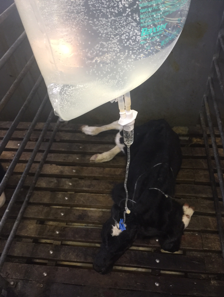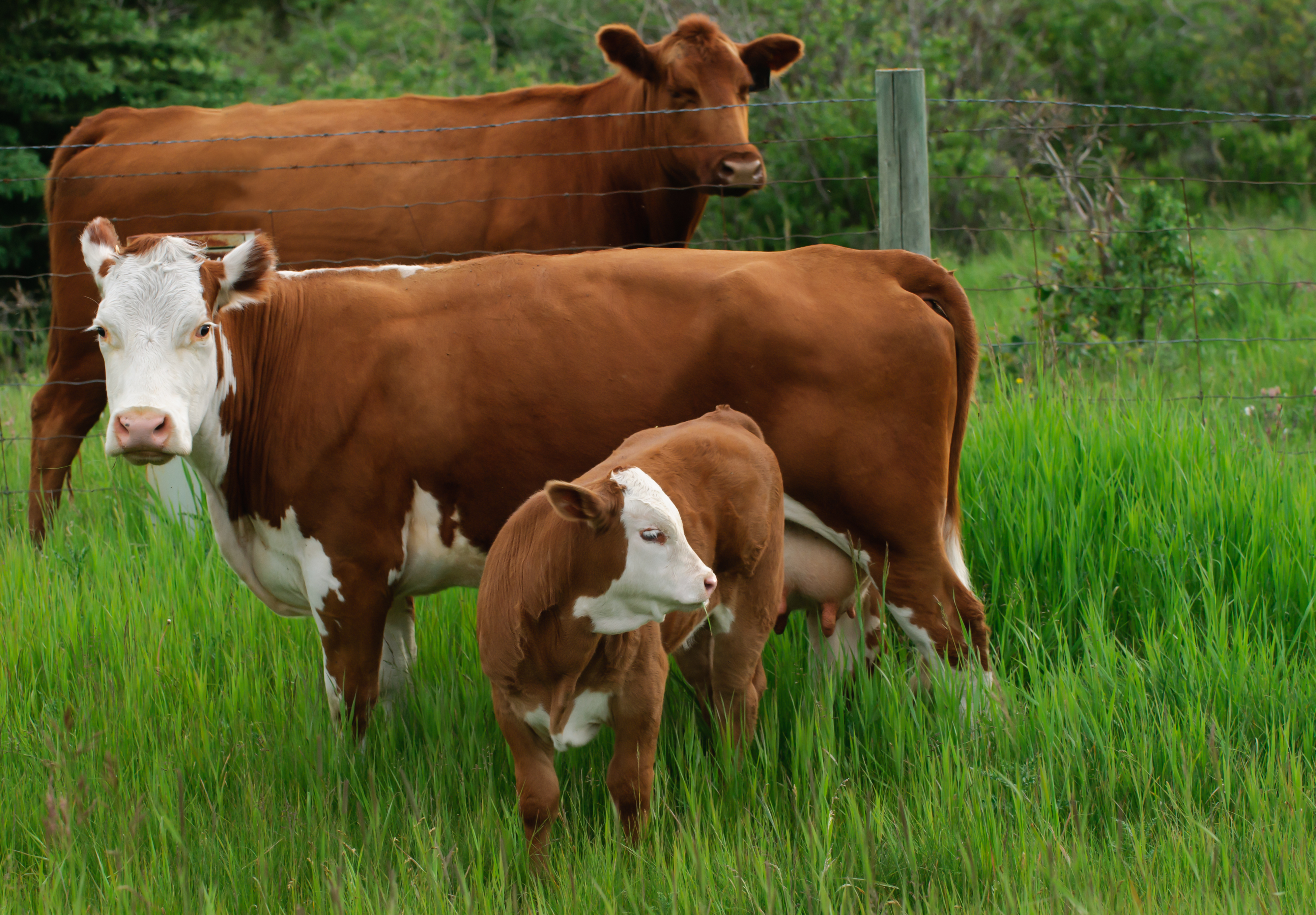Section 2 | Tackling Diarrhea in Young Calves
Page 10 /
Diarrhea Treatment
The most important therapy for a calf with diarrhea is fluids and electrolytes. This helps to offset both current and ongoing fluid loss in the manure. Other therapies to consider are pain relievers and antimicrobial medications. Consult with your herd veterinarian to determine what the best treatment plan is for calves that develop diarrhea.
Working with Your Veterinarian
Before implementing the treatment strategies outlined above, consult with your veterinarian. Your herd veterinarian will have an understanding of the common pathogens that are responsible for causing diarrhea in your herd, and will be able to develop a treatment strategy to reduce the impact of diarrhea.
Fluid Therapy
Depending on the severity of the dehydration, oral or intravenous fluid therapy may be required. The table below provides some indications of fluid therapy. Oral electrolytes are administered to calves that have diarrhea with mild levels of dehydration. Intravenous fluids should be given to calves with moderate to severe dehydration, as calves will not be able to absorb fluids quickly enough when administered orally.
| Level of Dehydration | Attitude | Skin Tent (sec) | Sunken Eyes | Treatment |
| <5% | Normal, bright, alert | <1 | None | None |
| 6-8% (Mild) | Slightly depressed | 1-2 | Slight | Oral Electrolytes |
| 8-10% (Moderate) | Depressed | 2-5 | Obvious | IV Fluids |
| >10% (Severe) | Comatose | 5-10 | Very Sunken | IV Fluids |
Oral Fluid Therapy
Oral electrolytes are the most common therapy for diarrhea. It should be started as soon as dehydration becomes evident in the calves. The goal of oral fluid therapy is to provide fluid to offset the loss that is happening through diarrhea. Oral electrolytes can also help in preventing the development of other harmful conditions when calves have diarrhea.
Along with oral fluids, it is important that calves continue to receive milk from their dam. In the past, some experts have suggested withholding milk from calves with diarrhea; research has shown that calves receiving milk in addition to oral electrolytes have a much greater weight gain when compared to calves that just received oral electrolytes14.
Intravenous Fluid Therapy
Intravenous fluid therapy should be provided if calves:
- Are moderate to severely dehydrated
- Have severe depression, weakness, or can’t stand
- Have not eaten in >24 hours
- Are hypothermic (<38.0 °C or 100.4 °F)
The goal of intravenous fluid therapy is to rapidly correct dehydration and acidosis [a metabolic disorder caused by a decrease in pH (more acidic) of the rumen, often as a result of a switch in diet]. Consult with your veterinarian to determine the best manner to administer IV fluids.

Antimicrobial Therapy
Antimicrobial therapy may not be beneficial in many cases of calf diarrhea. In some cases, when antimicrobial medications are used in calves with diarrhea, recovery time can be prolonged. Antimicrobial use may also contribute to the development of antimicrobial resistance and environmental contamination with antimicrobial compounds.
Antimicrobials should be restricted to calves that are showing systemic signs of illness such as those with a dull or depressed attitude, decreased appetite or activity, or the presence of an elevated rectal temperature (>39.5 °C or 103.1 °F) or those that have blood in their manure15. When calves show signs of systemic illness, it is likely that bacteria are the culprit. Either there are bacteria overgrowing in the gut, or they may have entered the bloodstream.
Other Therapies
Diarrhea can often be accompanied by intestinal cramping and abdominal pain. Therefore, using a pain reliever can aid in recovery from diarrhea in calves. For example, providing meloxicam to calves with diarrhea, in conjunction with other appropriate treatments (e.g. oral electrolytes), can reduce pain and improve intake of grain, leading to better calf growth rates.

References
- Garthwaite, B.D., Drackley, J.K., McCoy, G.C., and Jaster, E.H. Whole Milk and Oral RehydrationS Solution for Calves with Diarrhea of Spontaneous Origin. J. Dairy Sci. 77(3):835 – 843.
- Gomez, D.E., Arroya, L.G., Poljak, Z., Viel, L., and Weese, J.S. 2017. Implementation of an algorithm for selection of antimicrobial therapy for diarrhoeic calves: Impact on antimicrobial treatment rates, health and faecal microbiota. Vet. J. 226: 15-25.